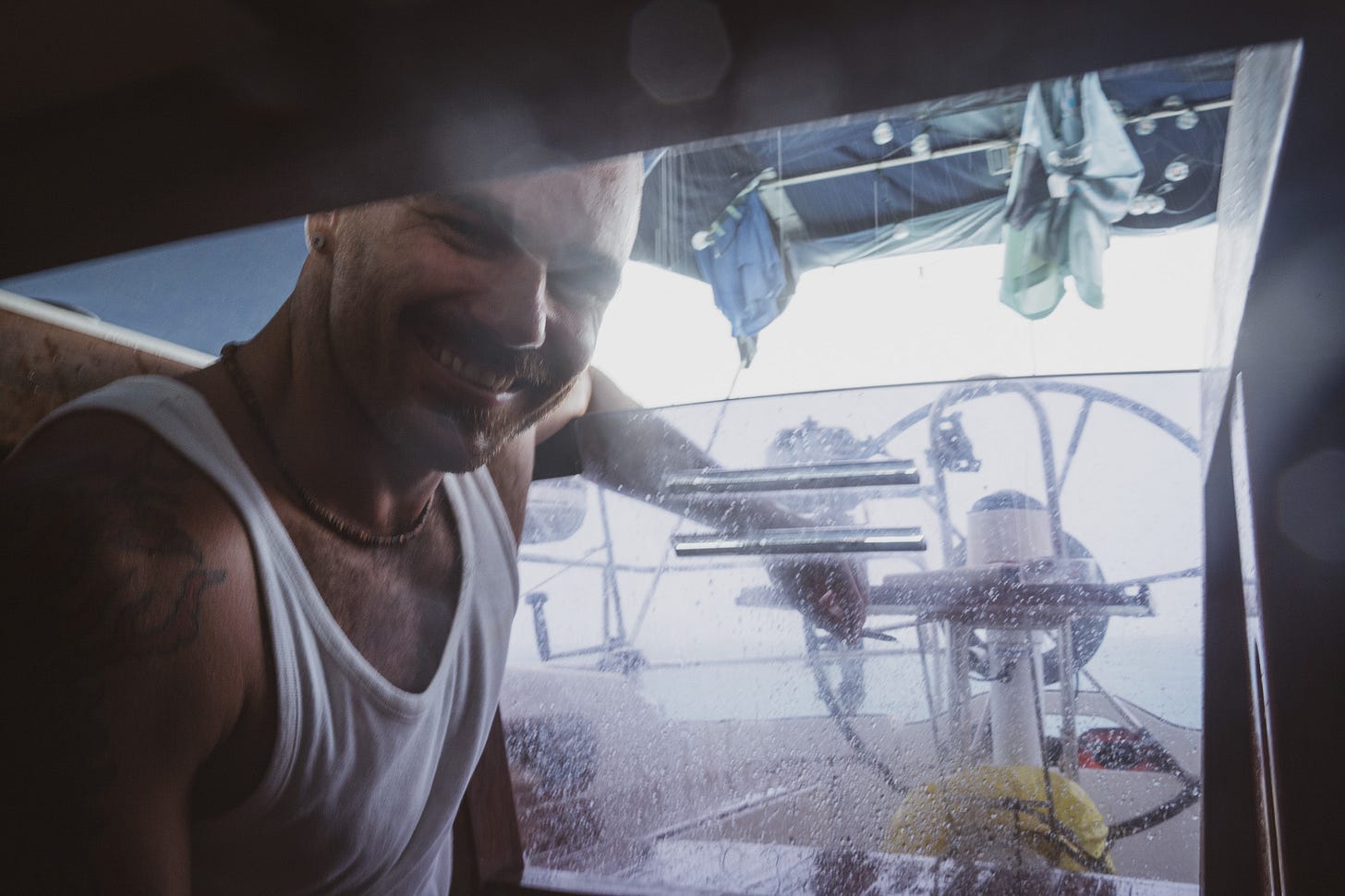How sailing taught me the art of joyful stoicism
Sailing from Mexico and Guatemala has been one of the most rewarding experiences of this journey, and a moment of profound alignment after months of pushing forward.
June recap: yet another month where every day has provided new “opportunities for growth” and hands down one of the most rewarding legs of this journey. Here are some of the insights and highlights from our journey through Mexico and Belize. I hope you enjoy the pictures and text—it cost me some serious sweat, and a tiny bit of blood and tears.
A month a…



